By Silvana Jakupovic — BSc and 4th Year Student of Naturopathic Medicine (CCNM-Boucher)
The Age of Wisdom & Health Benefits of Mushrooms
Under the lens of Traditional Chinese Medicine, menopause is considered a new phase in life [1]. With cessation of the monthly menstrual cycle, the belief is that the blood that was previously lost can now travel to the heart and nourish the spirit; this is why they refer to this new phase as the age of wisdom [1].
However, no matter how empowering it may be to reach this stage, there are several drawbacks that can make the transition into menopause uncomfortable and unwelcome. Due to the change in hormone balance and production, individuals may experience hot flashes, night sweats, mood changes, weight gain, and even vaginal dryness or discomfort that can put a damper on this transformative period [2].
Menopause may also increase the risks for certain diseases or conditions, such as osteoporosis or heart disease. Nonetheless, it is important to remember that menopause is not a disease or disorder, it is a natural stage in life that should be celebrated.
Herbs and natural foods like flax seeds, black cohosh, red clover, dong quai, have often been prescribed by TCM practitioners, herbalists, and naturopathic doctors for menopause. But today, other supplements for menopause include some of the most powerful medicinal mushrooms available to us. So, let’s talk about some ways you can make this transition with medicinal mushrooms!
Menopause and Estrogen Production
In menopause, we observe a marked decrease in estrogen production, and this is the underlying cause of many of the common signs and symptoms associated with this transition in life [2]. Estrogen has many actions in the body and can affect the reproductive tract, the urinary tract, our bones, blood vessels, heart, skin, hair, and the brain. The list goes on!
With the onset of menopause, the primary form of estrogen in the body switches from estradiol (produced mainly in the ovaries) to estrone (produced mainly in body fat) [2]. Could this switch be responsible for some of the effects we experience during menopause?
One factor that is not often discussed in regard to menopause is the occurrence of neurological symptoms, such as depression [2]. Depression can further exacerbate the adjustment into this new stage of life. Being able to identify what you are feeling and take steps to work towards healing is very important for one’s emotional health.
Lion’s Mane Mushroom Benefits for Menopause
Lion’s Mane, or Hericium erinaceus, is commonly referred to as “the brain mushroom.” Lion's mane supplements have exhibited neuroprotective and neurotrophic effects countless times in research and has illustrated the ability to ease neurological diseases, such as depression, anxiety, and neurodegenerative conditions [2].
In one study, it was found that Lion’s Mane mushroom supplements were able to activate Estrogen Receptor Beta (ERb); this is a receptor expressed in the brain whose activation may reduce menopausal depressive symptoms [2]. In fact, ERb is recognized in many studies as a target in the treatment of menopausal mood symptoms because a connection between the two has been established [3].
The use of phytoestrogens in the treatment of menopausal symptoms is increasing as more and more individuals are looking to find natural alternative options. Specifically, isoflavones are phytoestrogens naturally occurring in plants that may mimic estrogen in the body. Also, they may possibly combat signs and symptoms caused by estrogen deficiency seen in menopause [4].

Benefits of Reishi Mushroom and Cordyceps Mushroom for Menopause
Studies have looked at cordyceps and reishi mushroom health benefits for many conditions we face as we age. It's no surprise that menopause is one of them. Both Reishi (Ganoderma lucidum) and Cordyceps (ophiocordyceps sinensis or militaris) supplements contain compounds that have been shown to normalize the production of estrogen and progesterone by the ovaries. They can also support the pituitary-ovarian hormonal axis in various phases of the menstrual cycle.
During menopause, we know that the production of progesterone, known as the pregnancy hormone, is interrupted. Production of estrogen is not interrupted, and it is produced in the adrenal glands.
Cordyceps and Reishi mushroom benefits this presence of estrogen and help to prevent the onset of some typical symptoms of menopause (that are directly related to the lack of estrogen): lack of energy, poor mood, irritability, insomnia, osteoporosis, and weight gain.

Cordyceps for Prevention of Osteoporosis
Cordyceps is a mushroom that has been shown to have a variety of beneficial effects on our bodies such as boosting our immune systems, enhancing liver function, regulating insulin sensitivity, and blood sugar. It also helps with improving endurance, longevity, vitality, and bone health [4].
Along with many other risks, menopausal individuals are at an increased risk of developing osteoporosis due to the decrease in estrogen levels. One study focused on preventing estrogen deficiency-induced osteoporosis with the use of isoflavones isolated from the Cordyceps mushroom [4].
The study found that Cordyceps was able to prevent bone loss due to estrogen deficiency. The treatment group also exhibited increased levels of estradiol, as well as a lessened increase in LH and FSH levels [4].
Overall, it seems that Cordyceps supplements were able to regulate hypothalamic-pituitary function and result in a hormonal balance similar to that of non-menopausal individuals, thus decreasing possible symptoms and risks associated with the transition into menopause [4].
Anti-Obesity Effects of Cordyceps
Additionally, menopause tends to increase the risk of weight gain, which may potentially lead to obesity and a variety of other health conditions. Another study on Cordyceps found that treatment with the mushroom extract prevented fat accumulation, liver hypertrophy, and lowered triglyceride levels. This suggests that Cordyceps has anti-obesity effects in menopause and may potentially lower risks of cardiovascular disease [5].

Antioxidant Activity in Post-Menopausal Individuals
We’ve discussed oxidative stress before, and the importance in obtaining enough antioxidants in order to counteract the free radicals our environments make us so susceptible to. In today’s world, we are already vulnerable to the development of oxidative stress. Menopause increases this risk even further because it results in a decrease in total antioxidant activity in post-menopausal individuals [6].
Several studies are saying that oxidative stress, in the form of free radicals and antioxidant deficiencies, has been linked to the decrease in estrogen seen in menopause [7]. This is likely because estrogen may exert an antioxidant effect on the body. It does so by modulating the expressions of antioxidant enzymes in our systems [8].
So, estrogen does not have a direct effect on free radicals. However, it assists our biological antioxidant system in quenching these free radicals and lessening the possible development of oxidative stress [8].
Prevention of oxidative stress development is important because it plays a role in the development of cardiovascular disease (CVD). This may help to explain why postmenopausal individuals may have an increased risk of developing CVD due to decreased estrogen availability [9].
Chaga Mushroom to Improve Risk Factors Associated with Menopause
Chaga, or Inonotus obliquus, is a mushroom with one of the highest ORAC (Oxygen Radical Absorbance Capacity) values on the planet. ORAC refers to the ability of a substance to neutralize free radicals so that they do not overpower our antioxidant capabilities and cause oxidative stress.
Chaga is a powerful antioxidant with the ability to fight free radicals. It assists our antioxidant systems in preventing the development of oxidative stress [10,11]. If we can lessen the harmful effects of oxidative stress with the use of Chaga, there is a potential to improve risk factors associated with menopause and improve overall quality of life and well-being.

Medicinal Mushrooms – A Natural Option
Menopause should always be an empowering time in one’s life, and there is no need for the transition to be a difficult and uncomfortable experience. Of course, there are options, such as hormone replacement therapy, but many individuals are branching out to find alternative and natural options that may better suit their lifestyles.
Medicinal mushrooms, such as the ones discussed here, are incredible additions to your daily routine. Not only can they assist in alleviating the difficulties that come with menopause, but they also play roles in multiple bodily systems. This is because they are naturally as versatile in the medical world as they are in the culinary world!
Whether you prefer taking capsules, adding the powdered extracts to your coffees or smoothies, or even baking them into a healthy treat, the ways in which to use these mushrooms are endless. Something to note is that many TCM practitioners feel it is important to take these supplements with vitamin C. They feel it improves the absorption of the active ingredients of the medicinal mushrooms in the intestine.
If you are nearing “The Age of Wisdom”, it’s a great time to make a space for lion’s mane, reishi, cordyceps and chaga. You can fill up your pantry or supplement routine. Eversio Wellness offers each of these mushrooms in vegan capsules, as well as in various combinations in the collection of organic certified extract blends.
References:
[1] Medicinal mushrooms and menopause: All the benefits of Mycotherapy for women's well-being. Funghi Energia Salute. (n.d.). Retrieved November 7, 2022, from https://www.funghienergiaesalute.com/medicinal-mushrooms-and-menopause
[2] Anuar AM, Minami A, Matsushita H, Ogino K, Fujita K, Nakao H, Kimura S, Sabaratnam V, Umehara K, Kurebayashi Y, Takahashi T, Kanazawa H, Wakatsuki A, Suzuki T, Takeuchi H. Ameliorating Effect of the Edible Mushroom Hericium erinaceus on Depressive-Like Behavior in Ovariectomized Rats. Biol Pharm Bull. 2022;45(10):1438-1443. doi: 10.1248/bpb.b22-00151. PMID: 36184501.
[3] Vargas KG, Milic J, Zaciragic A, Wen KX, Jaspers L, Nano J, Dhana K, Bramer WM, Kraja B, van Beeck E, Ikram MA, Muka T, Franco OH. The functions of estrogen receptor beta in the female brain: A systematic review. Maturitas. 2016 Nov;93:41-57. doi: 10.1016/j.maturitas.2016.05.014. Epub 2016 Jun 4. PMID: 27338976.
[4] Zhang DW, Wang ZL, Qi W, Zhao GY. The effects of Cordyceps sinensis phytoestrogen on estrogen deficiency-induced osteoporosis in ovariectomized rats. BMC Complement Altern Med. 2014 Dec 13;14:484. doi: 10.1186/1472-6882-14-484. PMID: 25496560; PMCID: PMC4302055.
[5] Jang D, Lee E, Lee S, Kwon Y, Kang KS, Kim CE, Kim D. System-level investigation of anti-obesity effects and the potential pathways of Cordyceps militaris in ovariectomized rats. BMC Complement Med Ther. 2022 May 12;22(1):132. doi: 10.1186/s12906-022-03608-y. PMID: 35550138; PMCID: PMC9102749.
[6] Kolesnikova L, Semenova N, Madaeva I, Suturina L, Solodova E, Grebenkina L, Darenskaya M. Antioxidant status in peri- and postmenopausal women. Maturitas. 2015 May;81(1):83-7. doi: 10.1016/j.maturitas.2015.02.264. Epub 2015 Mar 7. PMID: 25824469.
[7] Doshi SB, Agarwal A. The role of oxidative stress in menopause. J Midlife Health. 2013 Jul;4(3):140-6. doi: 10.4103/0976-7800.118990. PMID: 24672185; PMCID: PMC3952404.
[8] Cervellati C, Bergamini CM. Oxidative damage and the pathogenesis of menopause related disturbances and diseases. Clin Chem Lab Med. 2016 May;54(5):739-53. doi: 10.1515/cclm-2015-0807. PMID: 26544103.
[9] Bourgonje AR, Abdulle AE, Al-Rawas AM, Al-Maqbali M, Al-Saleh M, Enriquez MB, Al-Siyabi S, Al-Hashmi K, Al-Lawati I, Bulthuis MLC, Mulder DJ, Gordijn SJ, van Goor H, Saleh J. Systemic Oxidative Stress Is Increased in Postmenopausal Women and Independently Associates with Homocysteine Levels. Int J Mol Sci. 2020 Jan 2;21(1):314. doi: 10.3390/ijms21010314. PMID: 31906485; PMCID: PMC6982320.
[10] Lee IK, Kim YS, Jang YW, Jung JY, Yun BS. New antioxidant polyphenols from the medicinal mushroom Inonotus obliquus. Bioorg Med Chem Lett. 2007 Dec 15;17(24):6678-81. doi: 10.1016/j.bmcl.2007.10.072. Epub 2007 Oct 25. PMID: 17980585.
[11] Nakajima Y, Sato Y, Konishi T. Antioxidant small phenolic ingredients in Inonotus obliquus (persoon) Pilat (Chaga). Chem Pharm Bull (Tokyo). 2007 Aug;55(8):1222-6. doi: 10.1248/cpb.55.1222. PMID: 17666849.

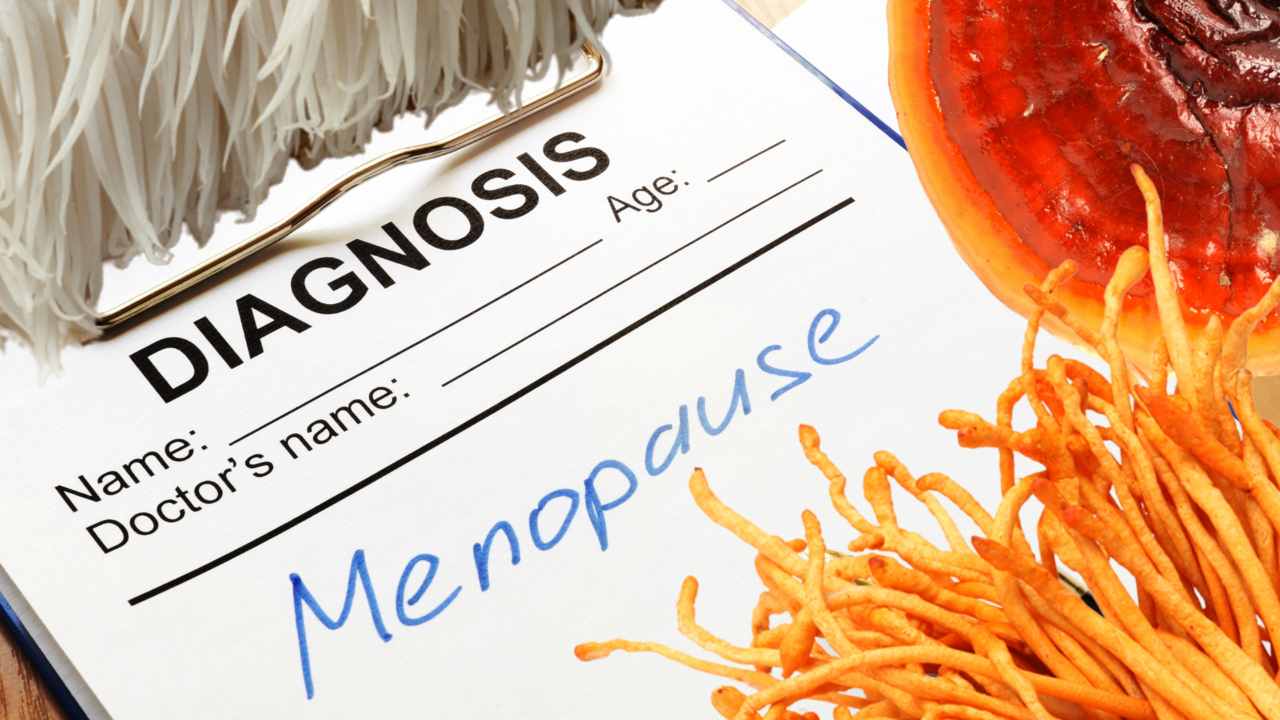

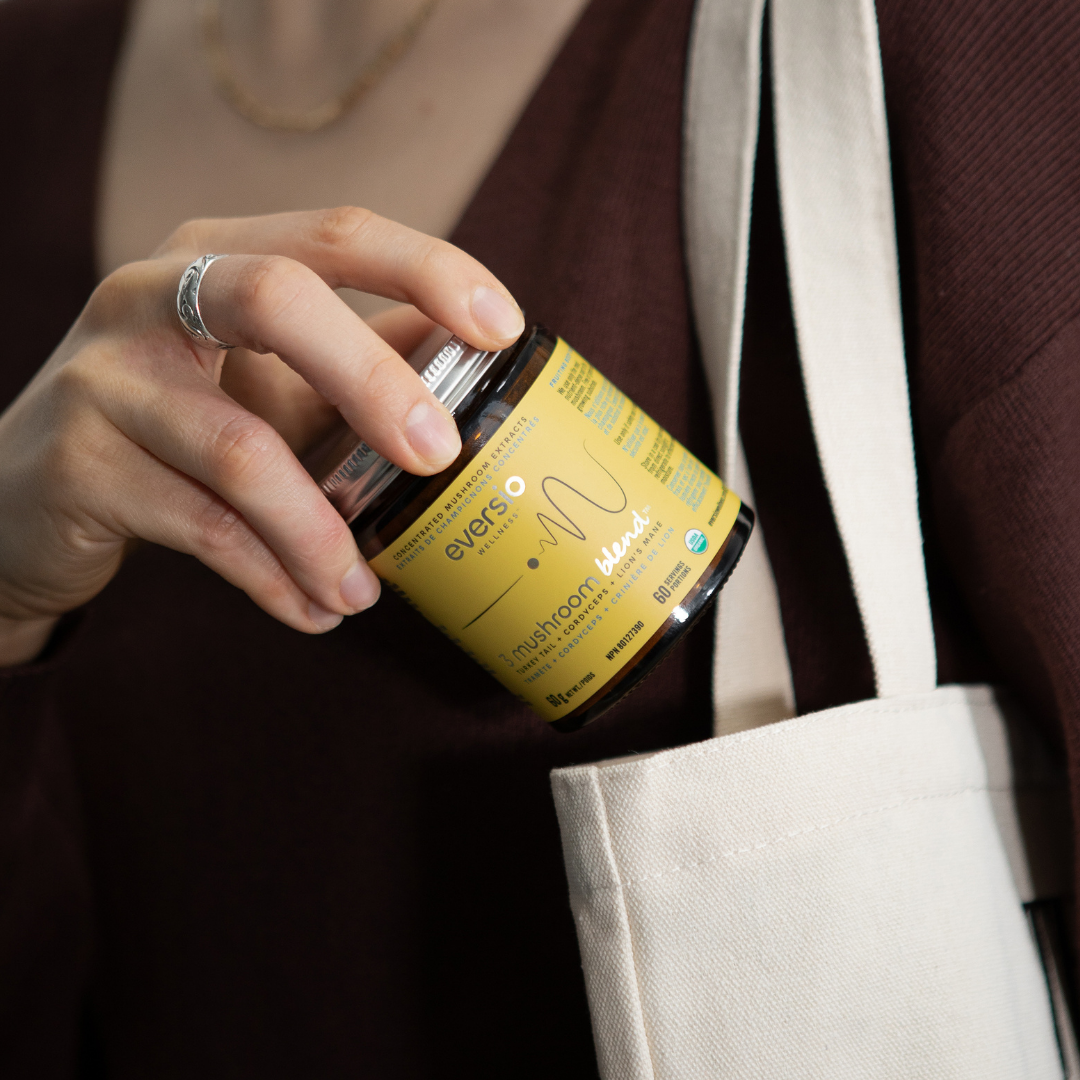

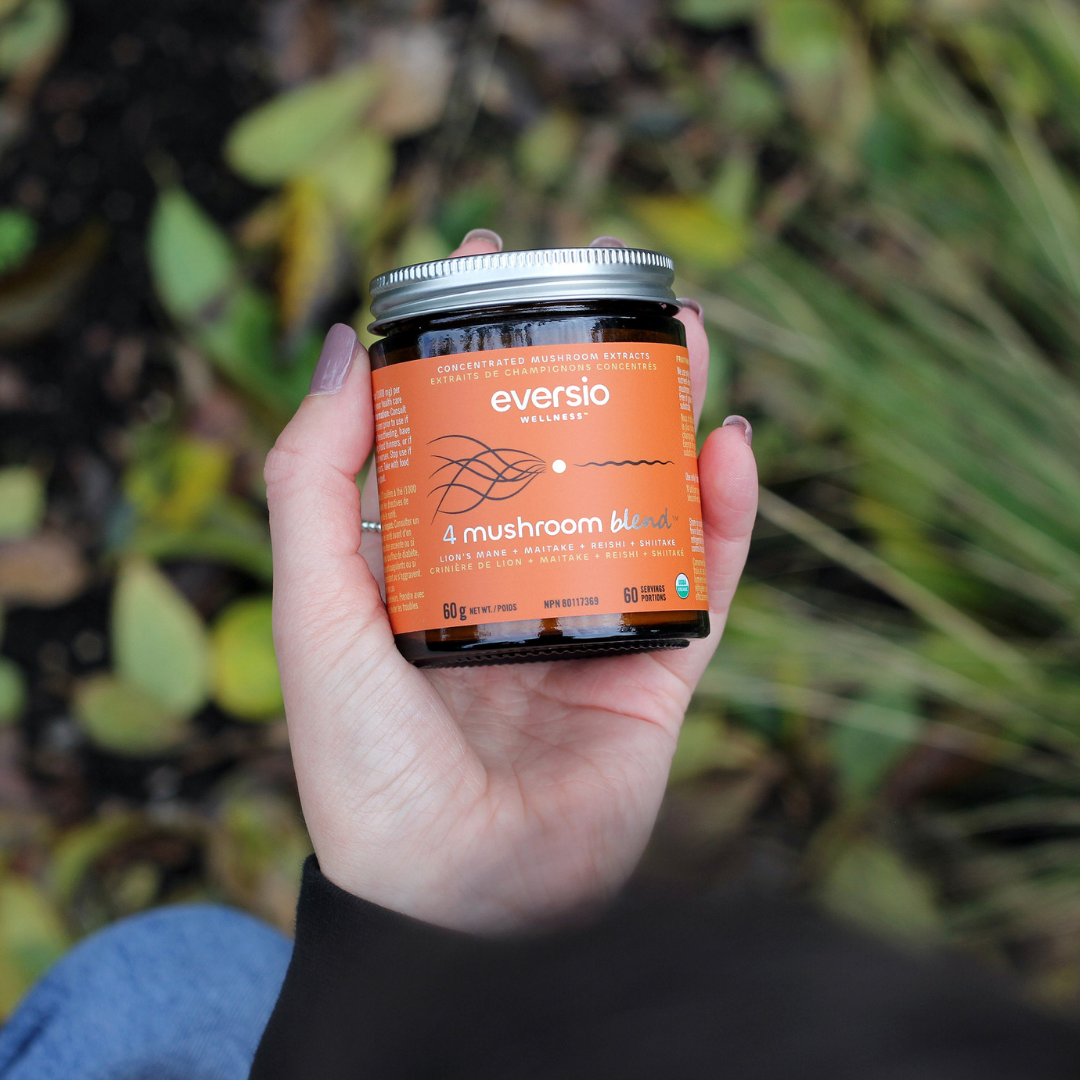



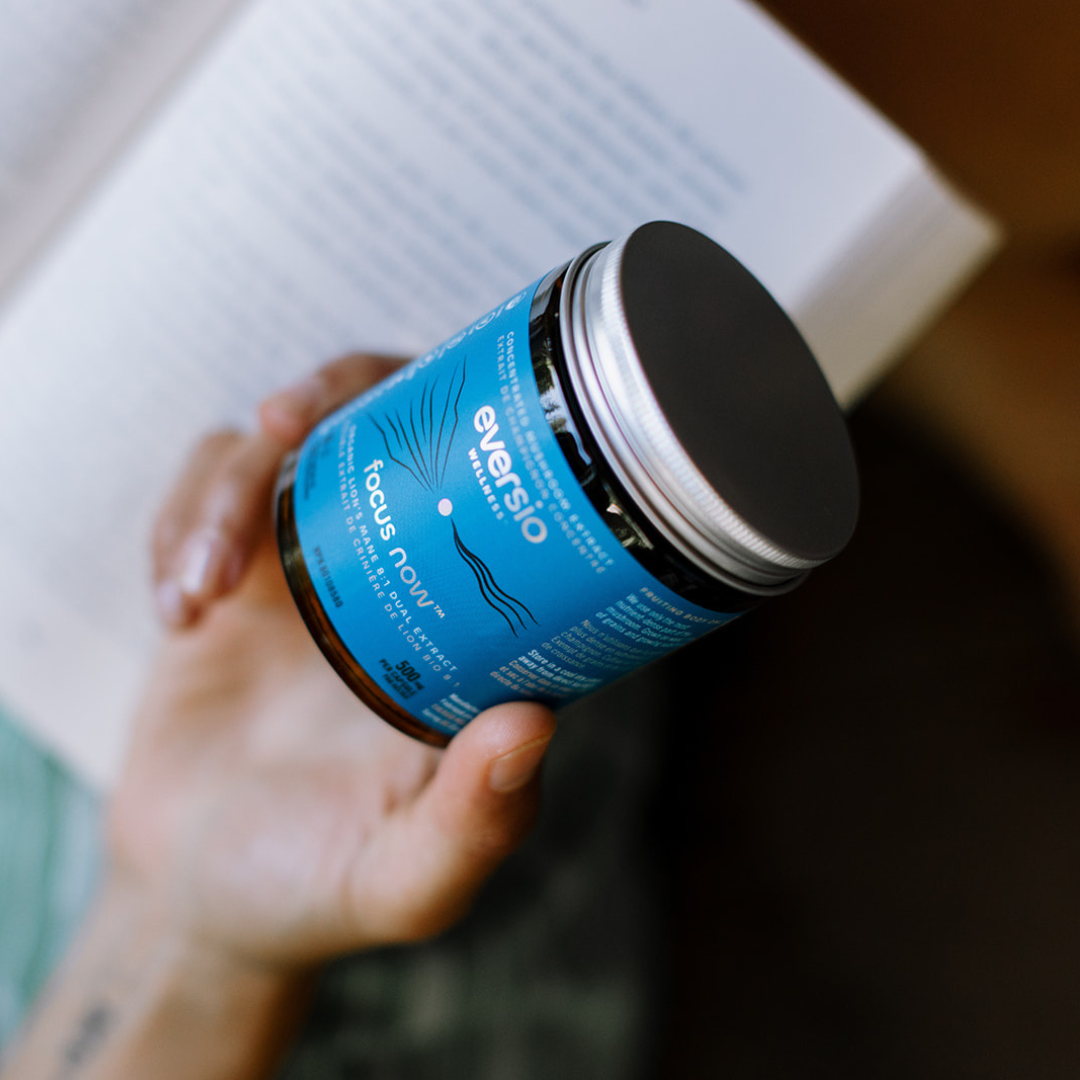

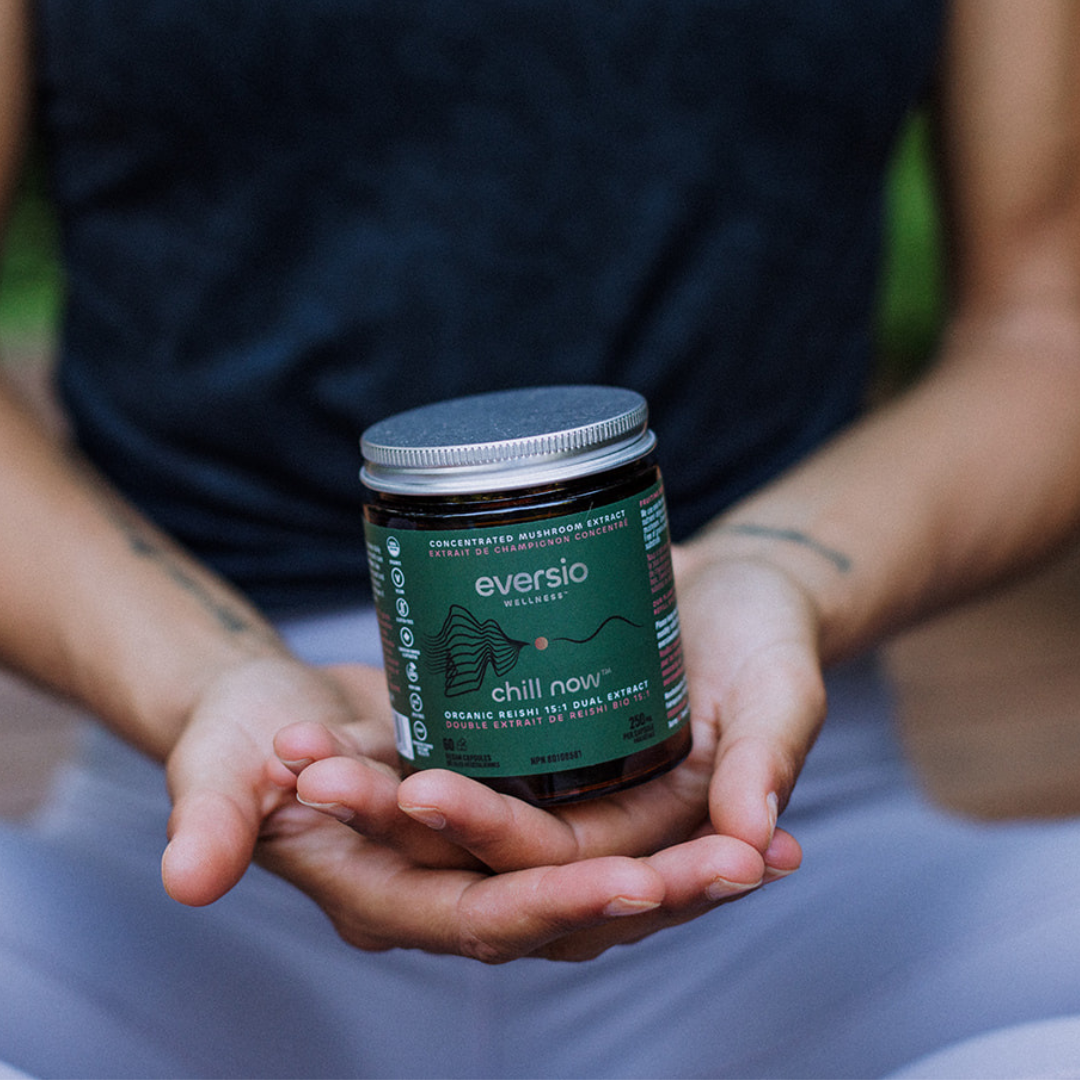


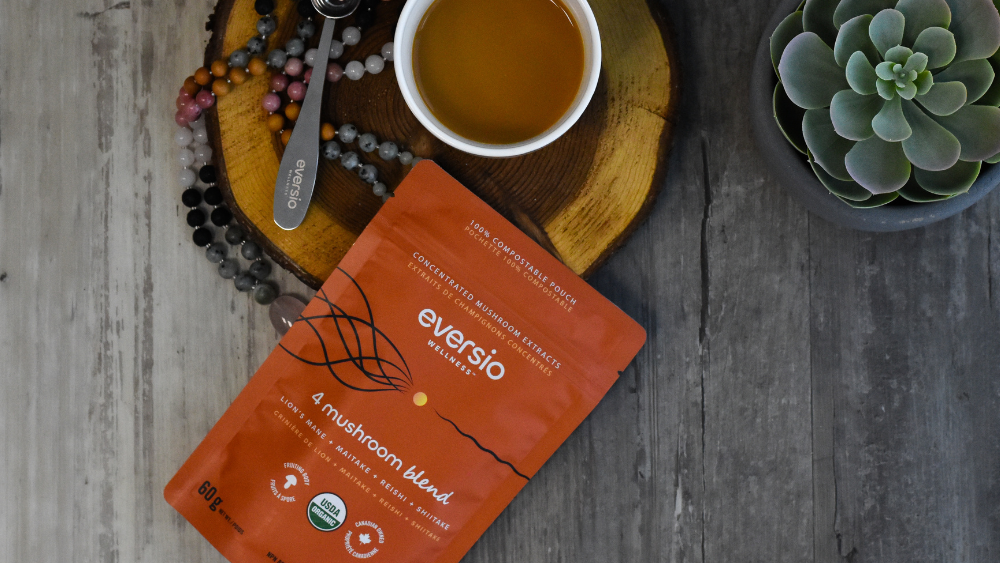





Leave a comment
All comments are moderated before being published.
This site is protected by hCaptcha and the hCaptcha Privacy Policy and Terms of Service apply.